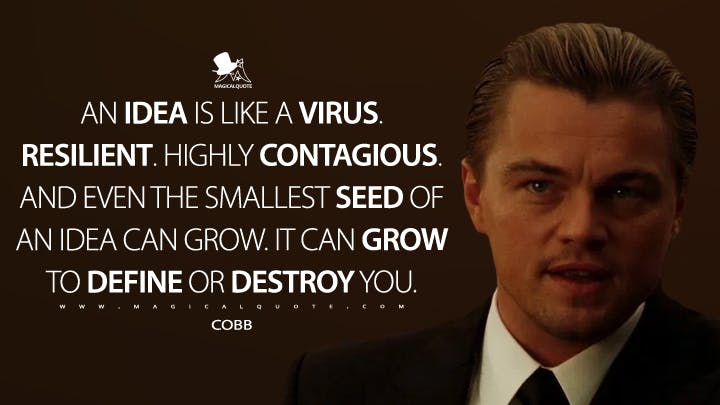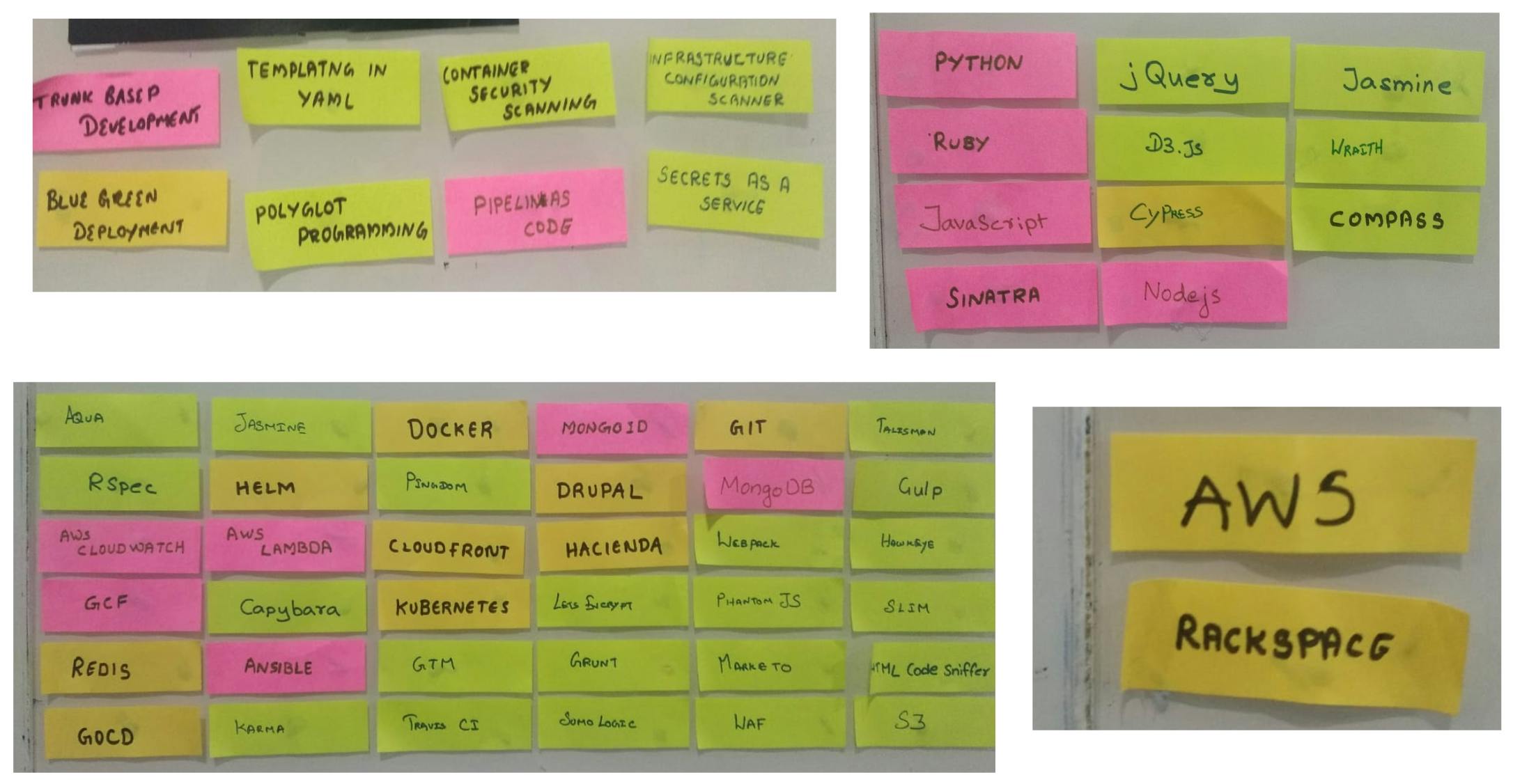Around four years ago, I joined ThoughtWorks. I had originally been referred by a schoolmate and 3 months after a failed attempt, I was able to clear all the numerous interview rounds and become a ThoughtWorker.
My first week at TW was a whirlwind of emotions. I was elated to join a company that was highly respected and praised by the software industry. I spent the week attending random talks, having discussions and making friends at the TT board.
On the last day of my first week at TW, I found a team working on what looked like a monitor that looked like a mirror. Under normal circumstances, I would have been too scared to talk to them but I saw a number of hobby DC motors lying on their table. Intrigued, as I've never seen motors at a software company and also because I had some experience working with them, I went up to one of the people at the table and asked him what they were working on.
It turned out that the mirror monitor and the motors were part of two different prototypes that the team was working on to showcase at a client meeting. I talked to the two people on what the mirror monitor was for and they explained their concept. The monitor, which was part of a setup, had a small camera that would continuously monitor one's facial expression and try to come up with the emotion that the person was feeling. And then based on the feeling, their system would then recommend a food item. Basically food based on mood.
The Idea
I was blown away. While I had read about such projects online, I had never seen anything like that in real life. I turned to the two people working on it and asked them how many years of experience they had in the software industry. I was thinking to myself, how long it would have taken them to understand how to recognise emotion using software and when I would reach that level.
Their response made my jaw drop.
They said they were interns. More specifically, STEP interns. I was amazed that the two interns were working on something as incredible as that. The amazement was then replaced by a feeling of shame as I realised that I had 4 years of experience and I couldn't even do 5% of the work that they had already done.
Amidst the shame of not being even remotely capable of doing anything similar and the amazement of two interns at ThoughtWorks doing it, a silent idea entered my head and over the next few months took root
I don't belong here

An idea is like a virus. Resilient. Highly contagious. And even the smallest seed of an idea can grow. It can grow to define or destroy you. - Cobb, Inception
My First Team
Soon after, I was assigned to a team that managed the company website thoughtworks.com. By the time I joined the team (after immersion/orientation and a bootcamp), the team had undergone some staffing changes and I realised that I was the senior most developer in the team.
This team redefined full stack engineering for me. The team owned everything from the standard frontend, backend and databases to deployment pipelines as well as infrastructure. We would work on upgrading our Virtual Machine images one day and then work on the website CMS the next
There was just one problem. I knew almost nothing in the project's tech stack. I was from the .Net ecosystem and didn't know anything outside it (except for MongoDB). And this is how the project's tech stack looked like (except for GKE, that got added later)

The more I worked on the expanse of tech that the team managed, the more stupid I felt. Every time I paired with the other devs, I felt that I was not contributing. Actually forget about contributing, I felt like I was taking away valuable development time that the other devs spent explaining how something worked. In order to ramp up faster, I tried to learn multiple things at once and failed at learning altogether.
The Incident
One day while pairing, the other dev asked me if I would like to code instead of observing. I agreed while dreading how stupid I would look if I made a mistake. With trembling fingers, I started typing very slowly, trying my hardest to not make a mistake. After 15 agonising minutes, I excused myself to go to the restroom. And then proceeded to have my first nervous breakdown.
I realised that my fingers had gotten cold and numb. And even though I was in an air-conditioned office, I was sweating buckets. After 10 minutes of panic, I stepped out and heard it for the first time.
The Voice
Anxiety and stress can make weird things happen. For me, it took the form of a voice inside my head. A cold little voice that laughed scornfully at how bad I was in everything I attempted. Over the next few months, the voice became louder. I would hear it every time I attempted to try something new to learn.
You'll never be able to learn in time
I would hear it every time I wanted to suggest a solution for a problem the team was facing
What makes you think your idea is any good. If it was good, the others would have thought of it first
Noticing my lack of participation and silence in meetings, my team started reaching out to me.
They're just being nice because you are so bad.
They gave me feedback on how I should participate more and how to structure my learning
You are so bad that they are gonna fire you
3 Months Later
3 months later, I was ready.
To be fired.
I was sick of it all. The idea and it's voice had breached my mental defences. I was convinced that I was going to be fired soon and I had made my peace with it. My team had tried to help me as much as possible but my case was hopeless.
According to me, I had become a dead weight to the team pulling them down. It was only a matter of time before I would be shown the door and I decided to make the best of whatever time I had left.
An Opportunity and then Some more
One day, one of the teammates proposed using a new tool called Terraform to manage our cloud infrastructure. The tool sounded very interesting and I decided to learn it by working on it as much as possible before I left.
I bought a book that helped understand the basics of it and managed to finish it within a week. After spending a few days working on it together, my fellow Terraform enthusiast joined a new team and the task of driving a new stream of work fell to me.
For the first time since I joined the team, I realised that I knew a little bit of something that no one else in the team knew much about. I became the person who everyone else in the team came to, for answers (in Terraform).
The impact that it had on me was incredible.
The Anchor
During my initial days in ThoughtWorks, a colleague had told me that I needed to find an anchor. The anchor would be something that gave me confidence, something that I should be able to draw strength from. I realised that I had found just that.
I had found an anchor that gave me strength to fight against the voice in my head. From then onwards, I had something that could drown out the cold voice.
Every time I felt I wasn't contributing, I would think about how I had helped clarify questions from teammates. Every time I felt that my ideas wouldn't be useful, I would think about how much the team welcomed my perspective on our infrastructure.
The Mentor
One evening, I found myself having a conversation with a colleague who had been my interviewer for one of the non-technical rounds. He asked me how I was doing and I told him that I felt when I cleared the interview I had overestimated myself. He felt that this meant that there were some issues that I wasn't voicing out and suggested that I find myself a mentor who could help me.
And I decided to find someone who could probably empathise with me. Luckily for me, I found one such person. He had also joined ThoughtWorks a few years ago as a lateral and was very vocal about some of the issues that new joinees faced.
During our first meeting, I told him about how miserable I felt initially and how things seemed to be improving but still felt out of place. He told me how what I felt was normal and how most new joinees went through these issues. In fact he had gone through some of these problems himself. As he told me his own experience and suggested ways to overcome these challenges, I felt as if there was a weight being lifted off me.
I wasn't the only one!
The Rotations
Pretty soon, one after the other, my teammates were assigned to newer teams. All of them had been on the team quite a while before I had joined. Within two months, I had become the oldest remaining team member, and the go-to person for understanding the project context.
And surprisingly, I was up to the task. I realised that even though I felt that I hadn't learnt anything, I had picked up quite a bit. My fear, of being exposed as an imposter, had been so strong that it clouded my mind about what I was capable of. It had prevented me from contributing my ideas and perspectives because I felt that they weren't any good to a team that already knew everything.
And now, with none of the older devs being available, I had no other option but to contribute. And that made all the difference.
The Radar
In a bid to take ownership of tasks, I had volunteered to be a feature lead for the then upcoming edition of the Tech Radar. This entailed a lot of coordination between different teams like Marketing, Design, the CTO's office (OCTO) etc
I realised soon enough that I didn't know how to do it and was struggling miserably when one of my newer teammates helped me out. Knowing that I just needed some direction and confidence, they were able to steer me onto the right way and backed me up with encouragement even when I screwed a few things up.
A New Idea
The day of the launch came. Even though two other senior devs weren't available for the launch because of some issues, my team had faith in the plan I had created. With the amount of prep work that my paranoid self had put in, the launch went extremely smooth.
My teammates congratulated me on doing a good job. We did discover a few minor errors but we fixed them soon. I felt a calmness that I hadn't for a long time. While there was a lot of great feedback about how well the launch happened, to me it was the birth of a new idea. That maybe, just maybe
I did belong here
What doesn't kill you..
There is a saying that what doesn't kill you makes you stronger. I came across another statement that was similar but made much more sense to me.
What doesn't kill you, can kill others
While the first statement may have proven true for my case, I realised that if I could tell others about what I went through, they wouldn't have to suffer as much as I did because of my own demons.
And that's what I did. Every time someone new joined the team, I put in extra effort to connect with them. I told them about all the mistakes I made with the hope that they would learn from my mistakes rather than repeating them. I tried to understand what they needed to get more comfortable and tried to help them with it.
My team got better at onboarding new joinees. Teammates, who I had helped onboard, helped other new joinees who joined after them. We started having discussions and meetings solely to discuss how we could improve onboarding. And we followed them up with better plans and actions.
All of that had a cascading effect. Team morale got better. Everyone participated in discussions and tech huddles because there was no fear of judgement. No question was considered stupid and the fear of making mistakes diminished.
That was when I realised how a little bit of effort can go a long way in drastically changing how teams work together.
The Imposters Among Us
I'm reasonably sure that anyone who joins a highly talented team will feel like an imposter just like me. And if you are feeling like what I did, don't beat yourself up about it. Make sure you continue learning. Don't let fear paralyse you. Don't be afraid of asking questions. And most importantly, ask for help. Ask for feedback from your teammates on how you can improve. Talk to them about what helped them when they joined. Do all of that consistently and all the negativity will vanish.
And if you are part of a team that has new joinees, remember that any steps that you take to help such 'imposters' (especially younger folks) will have an amazing effect on the team. It did for my team and I'm sure it will for others as well.
I hope this post helps you to learn from my mistakes. I'll finish this post with a tweet that helped me so much that I come back to it whenever I feel like an imposter again.
Article Cover Photo by Chris Yang on Unsplash

